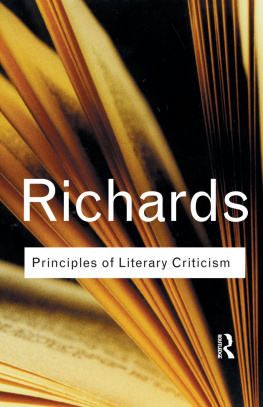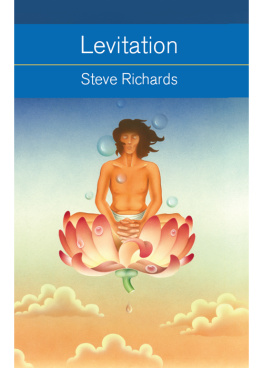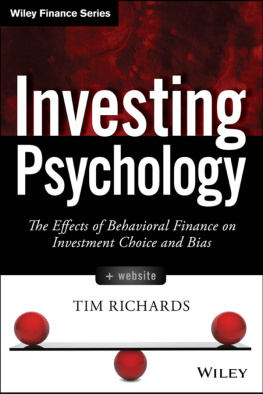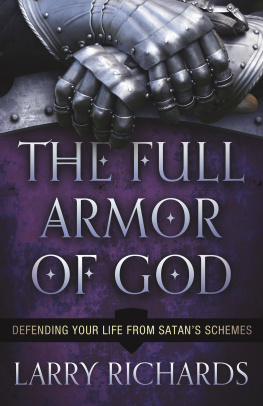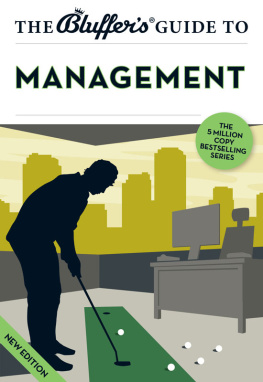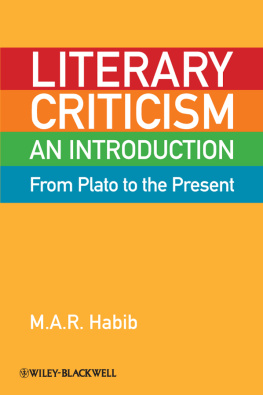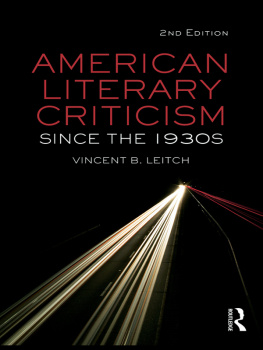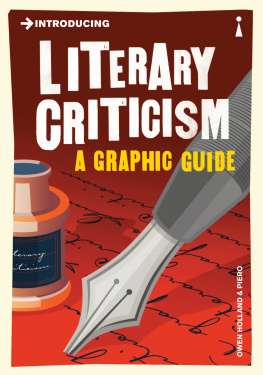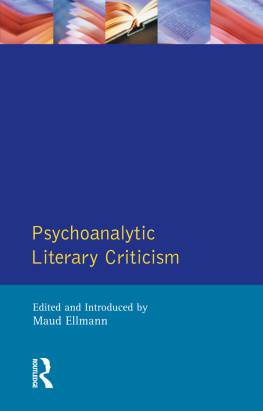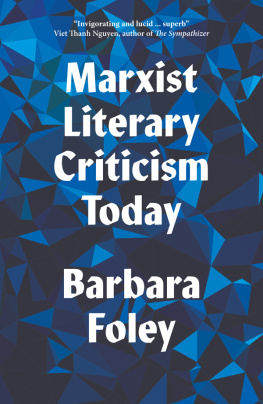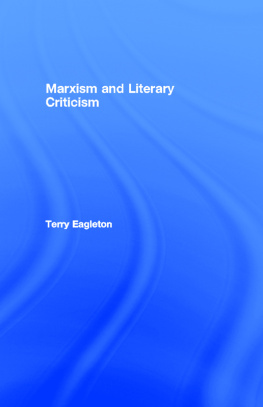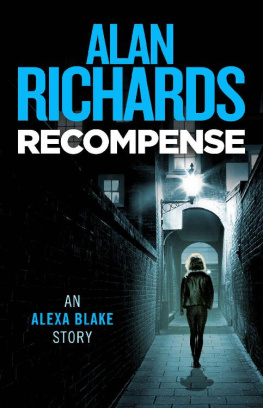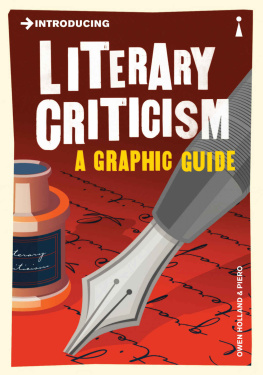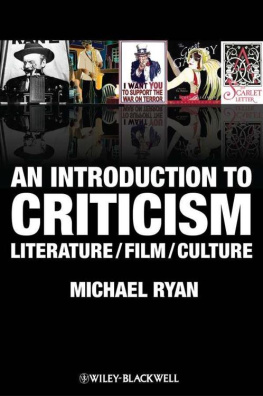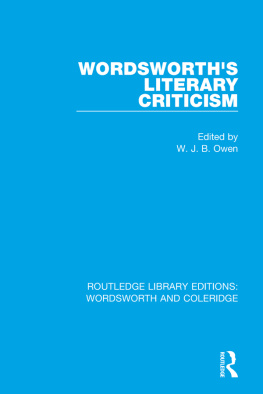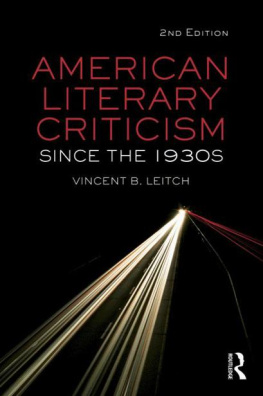Richards - Principles of Literary Criticism
Here you can read online Richards - Principles of Literary Criticism full text of the book (entire story) in english for free. Download pdf and epub, get meaning, cover and reviews about this ebook. City: London, year: 2017, publisher: Routledge, genre: Religion. Description of the work, (preface) as well as reviews are available. Best literature library LitArk.com created for fans of good reading and offers a wide selection of genres:
Romance novel
Science fiction
Adventure
Detective
Science
History
Home and family
Prose
Art
Politics
Computer
Non-fiction
Religion
Business
Children
Humor
Choose a favorite category and find really read worthwhile books. Enjoy immersion in the world of imagination, feel the emotions of the characters or learn something new for yourself, make an fascinating discovery.
- Book:Principles of Literary Criticism
- Author:
- Publisher:Routledge
- Genre:
- Year:2017
- City:London
- Rating:3 / 5
- Favourites:Add to favourites
- Your mark:
- 60
- 1
- 2
- 3
- 4
- 5
Principles of Literary Criticism: summary, description and annotation
We offer to read an annotation, description, summary or preface (depends on what the author of the book "Principles of Literary Criticism" wrote himself). If you haven't found the necessary information about the book — write in the comments, we will try to find it.
Principles of Literary Criticism — read online for free the complete book (whole text) full work
Below is the text of the book, divided by pages. System saving the place of the last page read, allows you to conveniently read the book "Principles of Literary Criticism" online for free, without having to search again every time where you left off. Put a bookmark, and you can go to the page where you finished reading at any time.
Font size:
Interval:
Bookmark:

To us Richards was infinitely more than a brilliantly new literary critic: he was our guide, our evangelist, who revealed to us, in a succession of astounding lightning flashes, the entire expanse of the Modern World.
Christopher Isherwood
Principles of Literary Criticism is an important contribution to the rehabilitation of English criticism perhaps because of its sustained nature, the most important contribution yet made. Mr Richards begins with an account of the present chaos of critical theories and follows with an analysis of the fallacy in modern aesthetics.
Herbert Read, The Criterion
Richards is simply the most influential theorist of the century.
George Watson, The Literary Critics
I. A.
Richards

First published 1924 by Routledge & Kegan Paul
Second edition (with two new appendices) 1926
2 Park Square, Milton Park, Abingdon, Oxon, OX14 4RN
711 Third Avenue, New York, NY 10017, USA
Routledge is an imprint of the Taylor & Francis Group, an informa business
First issued in hardback 2017
Typeset in Joanna by RefineCatch Limited, Bungay, Suffolk
All rights reserved. No part of this book may be reprinted or reproduced or utilised in any form or by any electronic, mechanical, or other means, now known or hereafter invented, including photocopying and recording, or in any information storage or retrieval system, without permission in writing from the publishers.
Notice:
Product or corporate names may be trademarks or registered trademarks, and are used only for identification and explanation without intent to infringe.
British Library Cataloguing in Publication Data
A catalogue record for this book is available from the British Library
Library of Congress Cataloging in Publication Data
A catalog record for this book has been applied for
ISBN13: 978-1-138-12374-8 (pbk)
ISBN13: 978-1-138-43987-0 (hbk)
A book is a machine to think with, but it need not, therefore, usurp the functions either of the bellows or the locomotive. This book might better be compared to a loom on which it is supposed to re-weave some ravelled parts of our civilization. What is most important about it, the interconnection of its several points of view, might have been exhibited, though not with equal clarity, in a pamphlet or in a two-volume work. Few of the separate items are original. One does not expect novel cards when playing so traditional a game; it is the hand which matters. I have chosen to present it here on the smallest scale which would allow me to fit together the various positions adopted into a whole of some firmness. The elaborations and expansions which suggest themselves have been constantly cut short at the point at which I thought that the reader would be able to see for himself how they would continue. The danger of this procedure, which otherwise has great advantages both for him and for me, is that the different parts of a connected account such as this mutually illumine one another. The writer, who has, or should have, the whole position in his mind throughout, may overlook sources of obscurity for the reader, due to the serial form of the exposition. This I have endeavoured to prevent by means of numerous cross-references, forwards and backwards.
But some further explanation of the structure of the book is due to the reader. At sundry points notably in its progress appears to be interrupted by lengthy excursions into theory of value, or into general psychology. These I would have omitted if it had seemed in any way possible to develop the argument of the rest strongly and clearly in their absence. Criticism, as I understand it, is the endeavour to discriminate between experiences and to evaluate them. We cannot do this without some understanding of the nature of experience, or without theories of valuation and communication. Such principles as apply in criticism must be taken from these more fundamental studies. All other critical principles are arbitrary, and the history of the subject is a record of their obstructive influence. The view of value implied throughout is one which must be held in some form by very many persons. Yet I have been unable to discover anywhere any statement of it to which I might satisfactorily refer the reader. I had to make a fairly full statement with applications and illustrations myself. And I had to put in the forefront of the book where, to the more exclusively literary reader, it will appear a dry and uninviting tract to be crossed for problematical advantages. The same remarks apply to the second theoretical expansion, the psychological chapters; they are to the value chapters, I fear, as a Sahara to a Gobi. No other choice seemed open if I did not wish any later, critical, sections to be misunderstood, than to include as a preliminary what amounts to a concise treatise on psychology. For nearly all the topics of psychology are raised at one point or another by criticism, but raised from an angle which ordinary text-books do not contemplate.
These two deserts passed, the rest of the book accords, I believe, much more closely with what may be expected of an essay in criticism, although the language in which some of the more obvious remarks are couched may seem unnecessarily repellant. The explanation of much of the turgid uncouthness of its terminology is the desire to link even the commonplaces of criticism to a systematic exposition of psychology. The reader who appreciates the advantages so gained will be forgiving.
I have carefully remembered throughout that I am not writing for specialists alone. The omissions, particularly as to qualifications and reservations, which this fact entails, should in fairness to myself be mentioned.
My book, I fear, will seem to many sadly lacking in the condiments which have come to be expected in writings upon literature. Critics and even theorists in criticism currently assume that their first duty is to be moving, to excite in the mind emotions appropriate to their august subject-matter. This endeavour I have declined. I have used, I believe, few words which I could not define in the actual use which I have made of them, and necesarily such words have little or no emotive power. I have comforted myself with the reflection that there is perhaps something debilitated about a taste for speculation which requires a flavouring of the eternal and the ultimate or even of the literary spices, mystery and profundity. Mixed modes of writing which enlist the readers feeling as well as his thinking are becoming dangerous to the modern consciousness with its increasing awareness of the distinction. Thought and feeling are able to mislead one another at present in ways which were hardly possible six centuries ago. We need a spell of purer science and purer poetry before the two can again be mixed, if indeed this will ever become once more desirable. In the Second Edition I added a note on Mr. Eliots poetry which will elucidate what I mean here by purity, and some supplementary remarks upon Value; in the Third, a few minor improvements have been made.
It should be borne in mind that the knowledge which the men of A.D 3000 will possess, if all goes well, may make all our aesthetics, all our psychology, all our modern theory of value, look pitiful. Poor indeed would be the prospect if this were not so. The thought, What shall we do with the powers, which we are so rapidly developing, and what will happen to us if we cannot learn to guide them in time? already marks for many people the chief interest of existence. The controversies which the world has known in the past are as nothing to those which are ahead. I would wish this book to be regarded as a contribution towards these choices of the future.
Font size:
Interval:
Bookmark:
Similar books «Principles of Literary Criticism»
Look at similar books to Principles of Literary Criticism. We have selected literature similar in name and meaning in the hope of providing readers with more options to find new, interesting, not yet read works.
Discussion, reviews of the book Principles of Literary Criticism and just readers' own opinions. Leave your comments, write what you think about the work, its meaning or the main characters. Specify what exactly you liked and what you didn't like, and why you think so.

